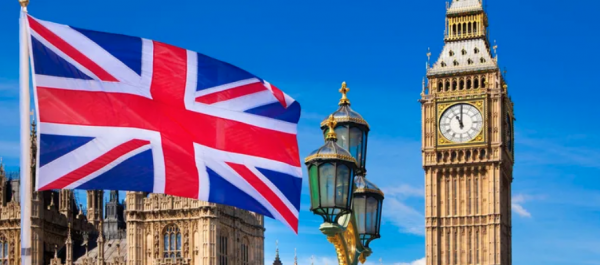Britain’s Political Uncertainty Has Stifled The Online Gambling Industry
The current reforms within the United Kingdom’s government are again set to delay the Gambling Act white paper. Flutter Entertainment’s chief executive, Peter Jackson, believes that the Gambling Act white paper will be delayed until 2023, with new ministers possibly wanting to “make their mark” on the document.
This ongoing certainty, he believes, will continue the UK’s flat trajectory in the sector and stifle growth down the line.
With a number of possible changes on the horizon for the gambling industry, the entire sector has been stuck in a state of limbo for three years waiting for new legislation to be confirmed. Many new start-up gambling sites, including bingo platforms, have pressed pause on their launches as, with new gambling legislation on the horizon, further changes would need to be made.
Harrison Score, an industry writer at WDW Bingo, echoes Jackson’s views.
“New and established operators alike aren’t feeling particularly brave right now. It’s a tough environment out there. Until there’s a clear sense of direction and some regulatory clarity, we’re not going to see a pipeline of exciting new bingo sites and casinos hitting the shelves.”
The review of the Gambling Act was initially launched in November 2020, with the white paper being the next phase in the process. The document was intended to be released late into 2021. However, this did not take place.
After suffering the initial delay, the Gambling Act white paper release date was revised to be released in July 2022, not knowing the UK government would be undergoing its current reformations.
The first round of staff resignations constituted further delays and saw the minister responsible for the Gambling Act review, Chris Philp, resign. Shortly after, prime minister Boris Johnson was the next to leave, which meant the review was once again delayed until a new prime minister was introduced.
Lizz Truss was announced as the new prime minister, but her reign lasted just 44 days before Rishi Sunak was announced as the latest and current prime minister. After a reshuffling of the cabinet, Sunak named Paul Scully as the minister in charge of the review, which further pushed back the potential publication date of the Gambling Act white paper.
While the current government reformations have induced numerous delays, various other factors affect the gambling industry (amongst others) within the United Kingdom. The global pandemic that COVID-19 created had a direct effect on the gambling industry.
Land-based gambling establishments were hit incredibly hard, with people trapped in their homes. In 2020, the gross gambling yield in the UK was £5.89 billion, which was down from £14.12 billion in the previous year. Furthermore, many people lost their jobs throughout the pandemic, with the number of people working in the gambling industry dropping by around 40,000.
The country’s concerns do not end there. Brexit continues to create new problems, which have recently been linked to increasing food prices and an overall impact on the ever-rising cost of living. Inflation has surged to a huge 11.1%, which is the highest it has been in over 40 years, despite the government's attempt to implement a support plan to protect households from the immense food and energy prices.
Gambling Act Review
All gambling in the United Kingdom is virtually based on the Gambling Act 2005. While it has provided a solid basis for several years, gambling has evolved considerably. Whether that be the surge of mobile gambling, enhanced player protection technology or the new styles of product design and advertising that are available, change can be seen everywhere.
While this new era of gambling has brought a variety of positive aspects, there remain far too many high-profile enforcement cases for the Gambling Commission to ignore. The potential harm that people can suffer within the gambling industry is an area the Gambling Commission is able to combat. The Gambling Commission is able to enforce license conditions that protect those who gamble.
The Review of the Gambling Act 2005 was initiated to assess whether or not the current regulations in place are right for the current gambling industry. Although the Gambling Act Review is still in the White Paper phase, various changes have been implemented within the gambling industry.
In the 2016 Review of Gaming Machines and Social Responsibility Measures, the Gambling Commission authorized new legislation that cut the maximum stake limits on Fixed Odds Betting Terminals to £2 from £100. Over the last two years, there has also been a tightening of the rules where gambling operators check the age and identity of their customers. In addition, the Gambling Commission banned the use of credit cards and made it mandatory for all online gambling operators to sign-up to the GAMSTOP service.
GAMSTOP is not alone in the gambling industry, with a variety of alternative gambling support services now available. For example, the Gambling Commission started a new initiative known as “Safer Gambling” to help negate the adverse effects of problem gambling. In 2017, the first Safer Gambling Week event took place, whereby people were encouraged to talk about the issues of gambling and how to gamble responsibly.
Gambling support services like those previously mentioned are crucial in keeping vulnerable people free from harm. Unsafe gambling has been directly linked to a variety of health issues, including depression and anxiety, as well as having an adverse effect on those around problem gamblers.
Reviewing the current Gambling Act provides the opportunity to analyze evidence and see which areas of the gambling industry require attention. But as previously stated, individual improvements and changes can happen to the Review as well.
Effects on the Gambling Industry
The UK has the largest online gambling market, and once the reviewed Gambling Act sets the new tone in this country, other regulated markets will follow. The document in question is expected to address a variety of topics in the gambling sector.
Back when the review was launched, an initial call for evidence saw the DCMS (Department for Digital, Culture, Media & Sport) asked questions relating to affordability checks, stake limits, deposit limits, and advertising and bonus restrictions. The evidence collected will be thoroughly analyzed and will help determine what needs to be changed within the Gambling Act.
However, until there’s some certainty and a plan from the government, the industry will be stuck in the same circular flight pattern of the past three years.
- Alistair Prescott, Gambling911.com














